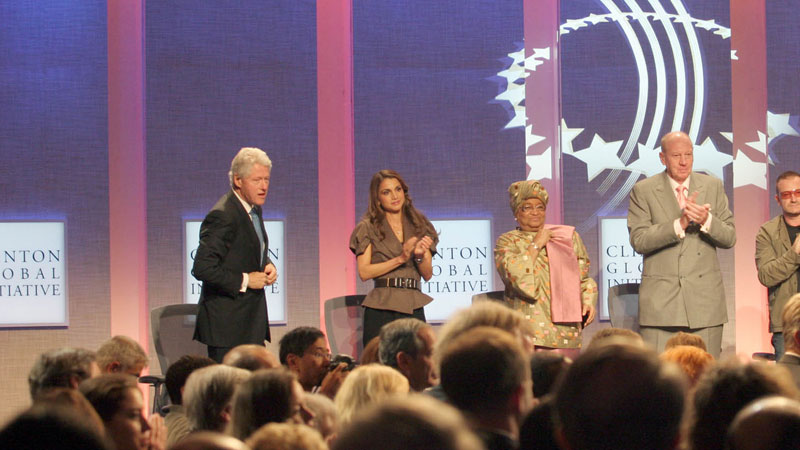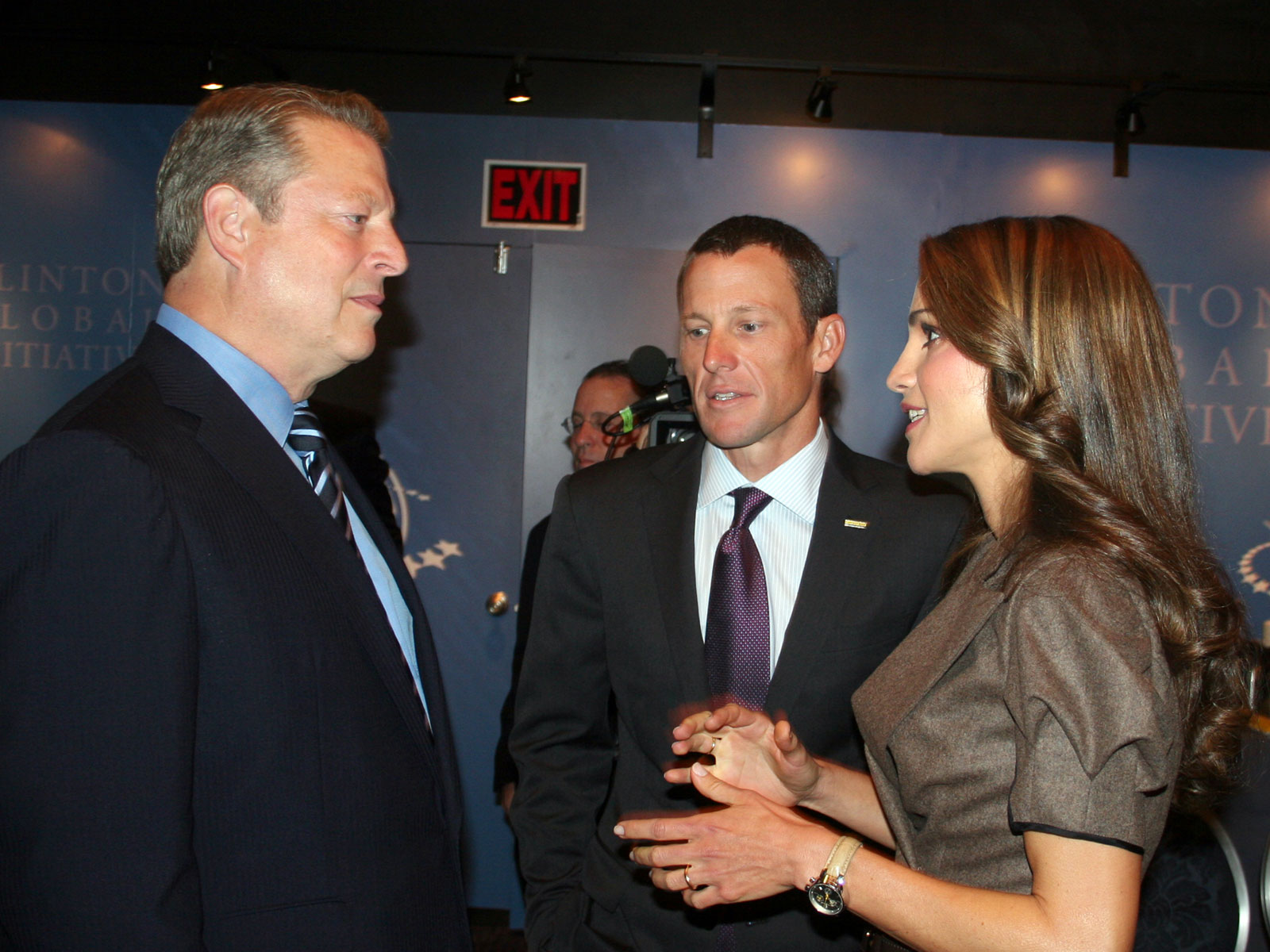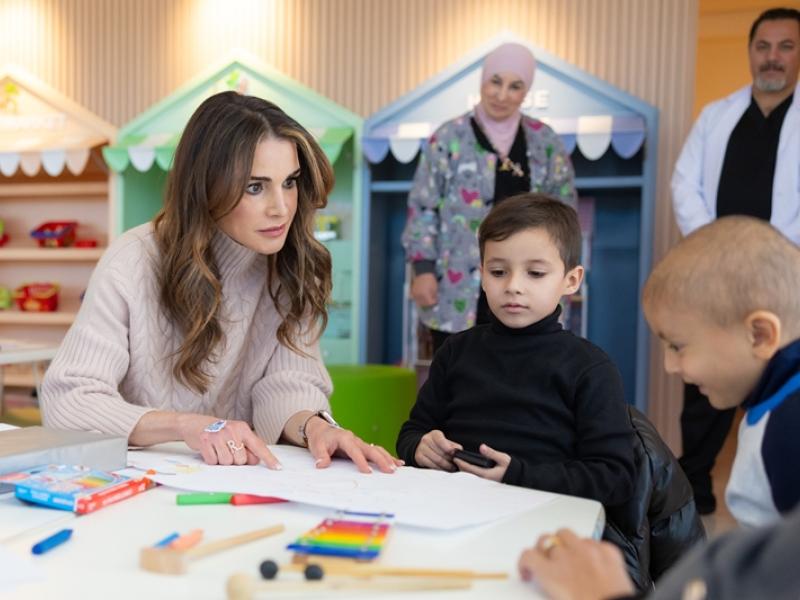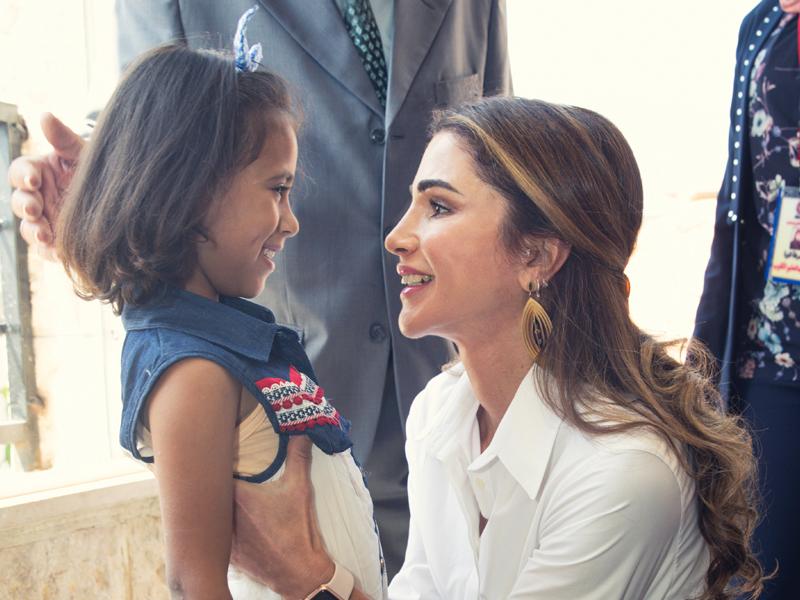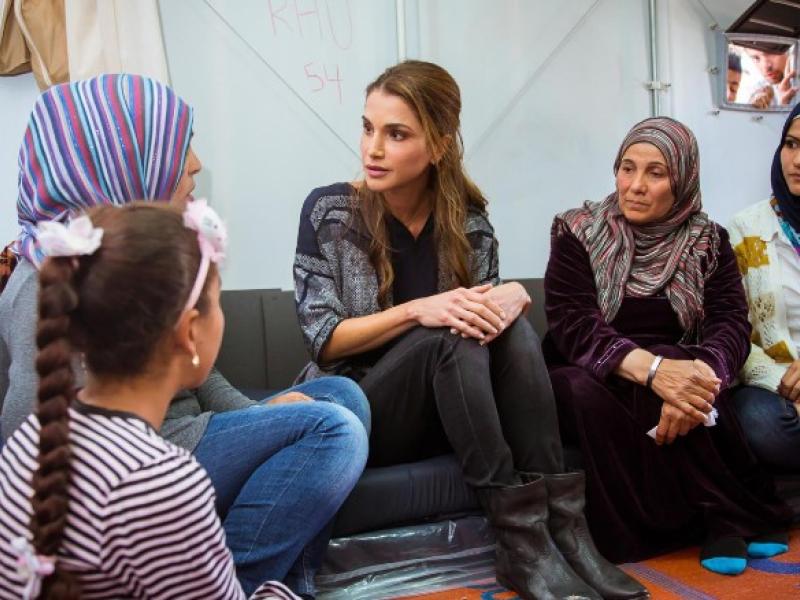(As it appeared in Slate)
Woke up this morning, and the first thing I did was phone my son Hashem to see how he was feeling. He was napping, and I didn't get much out of him, but it was still comforting to hear his sleepy little voice. I can't wait to give him a big cuddle.
And with that, I headed off to the Clinton Global Initiative for the opening session, which focused on education, health, poverty, and climate. And what a lineup: President Ellen Johnson-Sirleaf of Liberia, former Vice President Al Gore, Bono, Coca-Cola Chairman Neville Isdell, Lance Armstrong, Mayor Michael Bloomberg, plus, of course, the charismatic and charming President Clinton. A pretty dazzling panel.
Backstage in the holding room, we chatted about everything from the progress on the MDG and the challenges of the financial crisis, to Deerfield Academy (my husband's alma mater), and President Clinton's appearance on The Daily Show.
It was a nice surprise to meet Lance Armstrong. Not only was I taken aback that he knew who I was—he even knew I was a runner. We exchanged notes on the joys and aches of running—something I'm looking forward to getting back to next week at home.
So much was said on the panel. What a learning experience. I could spend hours writing about it—there were so many interesting ideas and experiences shared. So much passion.
And it's that combination of passion, focus, creativity, risk-taking, and a sprinkle of fun that sums up my good friend Bono. He kicked off his remarks with a simple question, which I paraphrase: If the United States alone can find $700 billion to save Wall Street, why can't the world find $25 billion to save 20,000 children who die each day? Makes you think, doesn't it?
As for Al Gore, I admired him before for his advocacy for the environment and the impact of climate change, but after talking with him and listening to him, I could understand why he has convinced so many people to change their ways and make new lifestyle choices. I promised myself to do more and to find ways to try harder. That's the kind of effect he has!
The session topics included public-private partnerships in education, something that is taking off in Jordan. I talked about Madrasati, a project I started in April back home. It aims to rejuvenate 500 of our most rundown schools. We've done 100 now, and the looks on the children's faces when I visit their classrooms make it so worthwhile.
And just when jetlag started to kick in, so did the rest of my schedule, with three back-to-back events.
It was an honor to introduce Secretary-General Ban Ki-moon at an event to celebrate progress made on the MDG, but he also cautioned about the huge amount of work, partnerships, focus, and finances needed to ensure that we meet the 2015 deadline.
I co-hosted a dinner to help shine a global spotlight on the issue of maternal health with Wendi Murdoch and Sarah Brown, who support the wonderful work of the White Ribbon Alliance.
The statistics are staggering: Every minute, a woman dies in childbirth, and for every one that dies, 30 more suffer complications. If you're a woman giving birth in Sierra Leone, you have a 1-in-8 chance of dying. In 2008, these numbers are just wrong. But, sadly, they're correct.
A few months ago, I came across this poignant and heartbreaking poem, by Marie-Therese Feuerstein, which I felt compelled to share.
"Maternal Mortality"
People don't really understand
How women die in childbirth
The details
Are almost
Unimaginable
The living foetus
Striving for life
Fighting to be born.
The life-going sanctuary
Of the uterus
Becomes the prison,
The tomb.
Or the mother,
Weak from the pain
Of delivery
Finds nothing
Seems able to quell
The gushing of her blood.
There are no more cloths
To absorb the flow,
And only two more hours
To her life.
If we cannot improve
The quality of women's lives
At least improve
The quality of their deaths …
How can we "sell"
Maternal mortality?
This human tragedy
is not available
On video.
Anyway
It is a "taboo" subject
Linked
With human sexuality
Which is already
A taboo subject.
Unfortunately,
No-one has interviewed
The dying woman.
We don't know
What she would have to say
To us.
Perhaps
Someone should interview
The children
Whose mothers have died.
They may well wonder
Why their mothers
Had to be pregnant again
In the first place.
It is difficult to sell
A commodity
That is too common.
Anyway, dying is a familiar occupation.
"Why should we
Get excited about maternal deaths?
There are so many other kinds!"
Perhaps we have to sell
Maternal mortality
More as a fin-de-siècle
Phenomenon.
The question is,
Does maternal mortality matter?
If it doesn't,
Perhaps we should approach, with caution,
Entry into a century
Where women will go on dying
In increasing numbers
And where …
It still won't matter.
